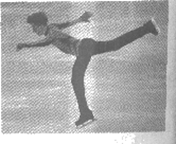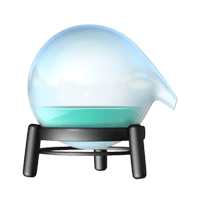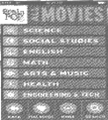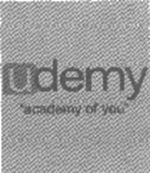本试卷满分共100分
考试时间90分钟
第一部分:知识运用(共两节,30分)
第一节
完形填空(共10小题;每小题1. 5分,共15分)
阅读下面短文,掌握其大意,从每题所给的A、B、C、D四个选项中,选出最佳选项。
This was the fifth time I’d been to the National Annual Competition. Reporters had been saying that I looked unbeatable. Everyone expected me to__1__. But I knew something was __2__because I couldn’t get this one picture out of my head: a picture of me, falling. “Go away,” I’d say. But the image wouldn’t __3____ .
It was time to skate. The music started, slowly, and I told myself, “Have fun, Michael! It’s just a(n) __4____ . ”
Once the music picked up, I started skating faster. I’d practiced the routine so many times, and I didn’t have to think about __5______ came next. But when I came down from the jump, my foot slipped from under me. I put a hand on the ice to __6______ myself, but it didn’t do any good.

Things kept getting__7____ . On a triple flip(三周跳)I spun through the air, and just as I landed, my whole body went down again. There I was, flat on the ice, with the whole world __8__.
I didn’t think I’d be able to pull myself together. But as I got up, I heard an amazing __9__. People were clapping in time to the music. They were trying to give me courage.
I wasn’t surprised by my scores. However, the audience’s clapping woke me up! I was so busy trying not to __10______ that I forgot to feel what was in my heart—the love for skating.
1. A. win B. enjoy C. share D. relax
2. A. challenging B. missing C. wrong D. dangerous
3. A. return B. leave C. appear D. stay
4. A. sport B. activity C. picture D. accident
5. A. when B. why C. who D. what
6. A. prepare B. catch C. comfort D. measure
7. A. clearer B. easier C. heavier D. worse
8. A. watching B. expecting C. ignoring D. changing
9. A. voice B. story C. sound D. idea
10. A. collapse B. resist C. fall D. escape
第二节
语法填空(共10小题;每小题1. 5分,共15分)
阅读下列短文,根据短文内容填空,在未给提示词的空白处仅填写1个适当的单词,在给出提示词的空白处用括号内所给词的正确形式填空。
A
Once upon a time, in a small town lived a man who couldn’t see. Yet, he carried a lighted lamp with him whenever he went at night. One night, he came__11__a group of travelers. One of them asked him, “Hey, man! You can’t see anything! Why do you carry a lighted lamp then?” The blind man replied, “Yes, __12____ (unfortunate), I am blind but the lighted lamp I am carrying is for people like you who can see. You may not see me coming and end up knocking into me. That is __13______ I carry a lighted lamp. ”
B
In recent years, Chinese literature has gained more popularity worldwide. An increasing number of Chinese literary works __14______ (translate) into multiple languages, including English, French, Japanese and Russian, and read by people from countries and regions __15__(involve) in the Belt and Road Initiative(“一带一路“倡议). Not only have the__16____ (story) from China’s past made their way through time, but the beauty of the language has drawn the world’s attention.
C
Last July China’s manned submersible(载人潜艇)Fendouzhe__17__ (dive) 10,909 meters deep in the Mariana Trench. This is the__18__ (deep) diving record for a Chinese manned submersible. The pressure underwater is very strong, __19__is like an elephant standing on the tip of your finger. Fendouzhe can carry up to three people. The egg shape makes it easier for the scientists__20__(move) around and study the sea.
第二部分
阅读理解(共两节,38分)
第一节
阅读理解(共14小题;每小题2分,共28分)
阅读下列短文,从每题所给的A、B、C、D四个选项中,选出最佳选项。
A
Various Apps to Learn
Apps are typical digital learning tools, which can give you diverse and personalized content to meet your needs. Want to find an app that can help you learn? Here are some great ideas for you.
Khan Academy allows you to learn almost anything for free. It covers subjects such as math, physics, biology, and even computer science. The real magic of this app is that you can learn at your own pace. You can review subjects that you are not good at, or start learning a subject you like. The app is in English. If you want to see its translation you can visit http://open. 163. com/khan.
BrainPOP mixes learning and technology in a fun and simple way. It’s free and teaches you something new every day. From the solar system to DNA, each topic starts with an interesting cartoon movie. After you’ve watched it, you can take a test to see how much you’ve learned.
Udemy is a “learn on demand” website and app. It is for career-oriented individuals to start their course pricing at $10. 99. This app allows you the flexibility to take your time on a course you purchase over the course of several months, without worrying about recurring(重复的) payments before you finish. This flexible learning app allows you to take things slow, fast, or anywhere in-between with complete control on your end.
Duolingo is the premier leader in language education for learning apps. You can learn to speak 29 different languages, all at the touch of a button. You’ll be invited to not only read new words, but to speak them. You’ll learn grammar and conversational strategies. This app helps you learn to communicate with a new portion of its inhabitants! |
21. According to the passage, what apps allow you to learn at your speed?
A. Khan Academy and Udemy. B. Udemy and Duolingo.
C. Khan Academy and BrainPOP. D. BrainPOP and Duolingo.
22. What can Duolingo offer its users?
A. Subjects reviewing. B. Speaking practice.
C. Technical support. D. Career training.
23. What is the purpose of the passage?
A. To compare the difference of different learning methods.
B. To introduce the development of learning technology.
C. To help find the suitable learning apps.
D. To provide various learning activities.
B
Recycling Electronic Waste
When Alex Lin was 11 years old, he read an alarming article in the newspaper, which said that people were burying old computers in backyards, throwing TVs into streams, and dumping(丢弃) cell phones in the garbage. This was dangerous because e-waste contains harmful chemicals that can leak into the environment, getting into crops, animals, water supplies—and people.
Alex was really worried and decided to make it next project for WIN—the Westerly Innovations Network. Alex and six of his friends had formed this organization to help solve community problems two years before.
But what could they do about this project with e-waste? The team spent several weeks gathering information about the harmful chemicals in e-waste and their effects on humans. They learned how to dispose(处置) of e-waste properly and how it could be recycled. Then, they sent out a survey and found only one in eight knew what e-waste was, let alone how to properly dispose of it.
Alex and his friends went into action. They advertised in the local newspaper and distributed notices to students, asking residents to bring their unwanted electronics to the school parking lot. The drive lasted two days, and they collected over 9,500 kilograms of e-waste.
The next step was to set up a long-term e-waste drop-off center for the town. After some research, they’d learned that reusing is the best way to deal with electronic devices and it is seven times more efficient than recycling. So, they began learning to refurbish(翻新) computers themselves and distributed them to students who didn’t have their own. In this way, they could help students in the area and protect the environment at the same time.
For a lasting solution to e-waste, the drop-off center wasn’t enough. Laws would have to be passed. In 2016, WIN helped push for an e-waste bill in their town, which required companies that manufactured or sold electronics to take back e-waste. The bill clearly forbids the dumping of e-waste.
Because of the work of WIN, more and more people, like Alex and his team, are getting the message about safe disposal of e-waste. As Alex says, “Today’s technology should not become tomorrow’s harmful garbage. ”
24. What was Alex’s worry after he read the article?
A. The littering of e-waste.
B. The recycling of plastic.
C. The change of environment.
D. The overuse of old computers.
25. What did Alex do to start the project?
A. Set up WIN. B. Collect information.
C. Ask friends for help. D. Carry out a survey.
26. Which can best describe the way Alex and his team did their work?
A. Traditional. B. Competitive.
C. Scientific. D. Convenient.
27. What message does the story convey?
A. There is no end to perfection.
B. Success comes through failure.
C. Every positive attitude has a reward.
D. Young people can make a big difference.
C
Just because a scientist puts a GPS tracking collar on a wild polar bear does not mean the animal will willingly keep it on. They can remove it, if one becomes annoying. But scientists have now found a way of using signals from those dropped collars to track the ice itself.
The scientists identified 20 collars that transmitted movement data consistent with ice drift(漂流) rather than polar bear motion between 2005 and 2015. The resulting records of how melting ice drifts in Hudson Bay are unique; there are no easily accessible on-the-ground sensors, and satellite observations often cannot accurately capture the motion of small ice sheets.
The team compared the removed collars’ movements to widely used ice-drift modeling data from the U. S. National Snow and Ice Data Center(NSIDC). Collar data indicated that the NSIDC model underestimates the speed at which ice moves around in Hudson Bay—as well as the overall extent of drift. Over the course of several months the model could diverge(偏离) from an ice sheet’s location by a few hundred kilometers, the scientists say.
This means the bears may be working harder, when moving against the direction of the ice, than scientists had assumed, “Since we’re underestimating the speed of drift, we’re likely underestimating the energetic effort of polar bears,” says Ron Togunov, who led the study.
The study reveals timely insight into how highly mobile ice moves. As melting increases in coming years, such ice will likely become more common farther north, in the central Arctic, says Andy Mahoney, a geophysicist at the University of Alaska, who was not involved in the study. Scientists had known NSIDC data could underestimate drift speeds, Mahoney says, but “any time we can find a data gap and plug it is a good thing. ”
Plus, such data could improve predictions about how oil spills or other pollutants may spread in seas littered with drifting ice, says Walt Meier, a senior NSIDC research scientist. The findings may even influence future NSIDC models, “It’s a really nice data set,” Meier says. “And certainly one we’ll take under consideration. ”
28. What can a GPS tracking collar do?
A. Measure the depth of ice sheet.
B. Capture the movement of ice.
C. Describe the melting speed of ice.
D. Record the emotional state of bears.
29. What can we learn about the collar data?
A. It shows the ice moves more slowly from its original location.
B. It may reveal polar bears are not so energetic as before.
C. It indicates the ice is more likely to move south in the central Arctic.
D. It can help predict the location of some pollutants in seas.
30. Which would be the best title for this passage?
A. Data Tells a Different Story
B. Wild Polar Bears’ Signaling
C. Insights into a Puzzling Aspect
D. Ice Is Taken under Consideration
D
At university, when I told people I was studying for a history degree, the response was almost always the same, “You want to be a teacher?” No, a journalist. “Oh. But you’re not majoring in communications?”
In the days when a university education was a privilege, perhaps there wasn’t the assumption that a degree had to be a springboard directly into a career. Those days are long gone. Today, a degree is all but a necessity for the job market, one that more than halves your chances of being unemployed. Still, that alone is no guarantee of a job—and yet we’re paying more and more for one.
Given those costs, most of us want to maximize that investment—and that can lead to a plug-and-play type of approach to higher education. Want to be a journalist? Study journalism, we’re told. A lawyer? Pursue pre-law. Not totally sure? Go into STEM(Science, Technology, Engineer and Maths) —you can become an engineer or an IT expert. And no matter what you do, forget the humanities, such as history, philosophy and languages.
It’s true that the humanities come with a higher risk of unemployment, but the risk is slighter than you would imagine. For young people in the U. S. , the unemployment rate of those with humanities degrees is four percent, just a little more than that of engineering degree holders. Lower salaries may not be caused by the degree itself either. The gender pay gap persists in the humanities, whose graduates are more likely to be female. Is it any wonder then that language teachers tend to make less than engineers?
According to LinkedIn’s research on the most sought-after job skills by employers for 2019, the ability to communicate and get along with people, to understand what’s on other people’s minds, and to do full-strength critical analysis were all valued and appreciated. It goes without saying that you can be an excellent communicator and critical thinker without a humanities degree. And any good university education, not just one in English or psychology, should sharpen these abilities further. But few courses of study are quite as heavy on reading, writing, speaking and critical thinking as the humanities—whether that’s by debating other students in a seminar, writing a thesis paper or analyzing poetry.
The whole question of whether a student should choose STEM versus the humanities might be misguided to begin with. The headlines most of us see don’t help. Whatever a student pursues in university, it must be something that they are not only good at, but interested in. Even if it means pursuing a “useless” degree—like one in humanities.
31. Why are people paying more and more for a degree?
A. Because people need a degree to further their career.
B. Because university education is considered a privilege.
C. Because a degree is viewed as a must for landing a job.
D. Because their interest can be developed in university.
32. The author mentioned a plug-and-play type of approach to show _________.
A. a tip for choosing a major
B. the importance of higher education
C. a problem that exists among STEM graduates
D. the reason why people overlook the humanities
33. According to the author, what is the benefit of majoring in humanities?
A. A comparatively high salary after graduation.
B. Better chances of getting rid of gender prejudice.
C. A better communicative skill than science students.
D. More exposure to the training of language and thinking.
34. What is the author’s attitude towards the pursuit of humanities?
A. Doubtful. B. Optimistic.
C. Objective. D. Concerned.
第二节(共5小题;每小题2分,共10分)
根据短文内容,从短文后的七个选项中选出能填入空白处的最佳选项。选项中有两项为多余选项。
What Can We See in a Logo?
We see hundreds of logos on signs, vehicles, websites, and even on the clothes we wear. All of these logos are designed to attract our attention. __35______ However, recently research supports the idea that remembering what a logo looks like is a very difficult task.
Researchers gave 85 students a simple assignment to draw the Apple logo purely from memory. Surprisingly, only one student in the study could accurately draw the logo from memory. 36__ Researchers have developed a theory that they think might help to explain this blind spot in our memories.
Logos are typically designed to be simple and easy to recognize with a quick glance. Yet the frequent exposure to these logos can actually make our brains overlook them. This process is known as “attentional saturation(注意力饱和). ” __37__
Even though the brain is accustomed to ignoring unnecessary details, it is also programmed for recognition. When we see images such as logos over and over again, we become familiar with them. This constant exposure leads to something scientists refer to as gist(梗概)memory. __38__This general sense of memory has its own benefits. In fact, familiarity with a popular logo can even make people feel more comfortable about purchasing or using certain products.
Logos are everywhere we look today. A fancy design or a thoughtful color combination may be a good start for a logo concept, but there are other factors to consider. __39______ A clever design may be interesting, but most people will forget the details-especially if our brains have anything to say about it.
A. This may be dangerous to logo designers.
B. People will know the product behind the logo.
C. So why is it so difficult for people to recall the details of images?
D. They also help us remember a product or service connected to that image.
E. It means that our brain remembers the basic idea without all of the details.
F. Our brains actually signal us to ignore information we don’t think we will need to remember.
G. Logo designers need to know that people will only remember what they believe is worthwhile.
第三部分
书面表达(共两节,32分)
第一节
阅读表达(共4小题;第1、2题各2分,第3题3分,第4题5分,共12分)
阅读下面短文,根据题目要求回答问题。
Most young people are accustomed to having online profiles on their mobile devices, such as smart phones, pads, and laptops. These devices contain a significant amount of information about them and their friends and family, including contact numbers, photos and locations. Since they are exposed to cyber more frequently, young people need to be aware of cyber threats and have a good understanding of cybersecurity, the measures taken to protect systems, networks, devices, and programs from digital attacks.
Cybersecurity experts continually identify the use of strong, unique passwords as one of their top recommendations. However, because young people have been using passwords online for most of their lives, they might not have stopped to think about how unsafe their passwords actually are. Indeed, strong passphrases, passcodes or other features such as touch identification to lock their devices can help protect their information if their devices are lost or stolen.
Public wireless networks are widely used nowadays, however, they are not safe, which means that anyone could possibly see what you are doing on your laptop or smart phone while you are connected to them. Young people should limit what they do on public WiFi, and avoid logging in to personal accounts like email and E-pay. If needing a safer connection, they should consider using a virtual private network (VPN) or a personal mobile hotspot.
Finally, information on how to act online is important for the safety of young people. They should be taught that they should add “friends” on social media only if they know who he or she is. They should also be made aware that posting pictures of other people without their permission might get themselves into trouble.
Starting to use these methods and raising the certain awareness of cybersecurity at an early age can dramatically improve the security of a young person’s online life.
40. What is cybersecurity?
_________________________________________________________________________
41. What is the possible danger of connecting to public wireless networks?
_________________________________________________________________________
42. Read the following statement, underline the false part of it and explain the reason. Experts continually recommend young people to use passwords frequently because they lack security awareness.
_________________________________________________________________________
_________________________________________________________________________
43. Please briefly present what you can do to improve your cybersecurity. (about 40 words)
_________________________________________________________________________
_________________________________________________________________________
_________________________________________________________________________
_________________________________________________________________________
第二节
应用文写作(共20分)
假如你是红星中学高三学生李华。你的英国笔友Chris和你都喜欢观察和记录生活。他在邮件中询问你记录生活的方式,请你回复邮件,内容包括:
1.你记录生活的方式(日记、vlog等);
2.你的感受与收获。
注意:1.词数不少于100字;
2.开头和结尾已经给出,不计入词数。
Dear Chris,
_________________________________________________________________________
_________________________________________________________________________
_________________________________________________________________________
_________________________________________________________________________
Yours,
Li Hua
参考答案
笔试部分(共100分)
第一部分
知识运用
第一节
完形填空(共10小题,15分。每小题1. 5分)
1-5 ACBAD 6-10 BDACC
第二节
语法填空(共10小题,15分。每小题1. 5分)
11. across 12. unfortunately 13. why
14. have been translated/were translated 15. involved
16. stories 17. dived/dove 18. deepest
19. which 20. to move
第二部分
阅读理解
第一节
阅读理解(共14小题,28分。每小题2分)
21-25 ABCAB 26-30 CDBDA 31- 34 CDDC
第二节
七选五(共5小题,10分。每小题2分)
35-39 DCFEG
第三部分
书面表达
第一节
阅读表达(共4小题,12分。1-2题每小题2分,3小题3分,4小题5分)
40. Cybersecurity is the measures taken to protect systems, networks, devices, and programs from digital attacks. / The measures taken to protect systems, networks, devices, and programs from digital attacks. /The measures taken to protect your personal information online.
41. Anyone could possibly see what you are doing on your laptop or smart phone. /What you are doing on your mobile devices will be exposed to other people. /Their personal information may leak out (be unsafe).
42. Experts__continually__recommend__young__people__to__use__passwords__frequently because they lack security awareness.
In spite of frequent use of passwords online, young people may not be aware of how unsafe their passwords actually are. So experts continually recommend them to use strong, unique passwords.
43. Firstly, I will design strong passwords to unlock my mobile phone. Also, when in public places, I choose to use my mobile hotspot rather than public WiFi. Besides, if strangers ask me to add “friends” on WeChat, I tend to refuse. (43 words)
第二节
应用文写作
(共20分)
Possible version 1:
Dear Chris,
How is everything going? Knowing that you’re curious about how I take a record of my life, I’m more than happy to share it with you.
Since I was a little child, I’ve been friends with diary, with whom I can share my deepest feelings and thoughts. When I read my diary page by page, all my memories flash back clearly to me. It’s a really valuable record of my growth.
Nowadays, many teenagers around me prefer to share their vlogs on the social media like bilibili or WeChat momets. But as for me, diary is like wine, the longer, the better. It will be my life-lasting friend.
What about you? I’m looking forward to your earliest reply. (129words)
Yours,
Li Hua
Possible version 2:
Dear Chris,
How are you doing? It’s a pleasure to receive your email asking me about the ways I record my daily life and I’d love to share them with you.
I have developed a habit of keeping a diary since I was young. My diary is not only the place where I take down whatever happens to me but a best friend who I can tell my deepest feelings and thoughts to.
Recently, I have been experimenting with vlog, which, as you know, is an increasingly popular way of recording life. Videoing the cherished moments and sharing them on social media is such an experience that I have gained great pleasure from it.
In my opinion, whatever the way is, it is to prepare you to have a taste of the beauty of life. What do you think of it?
I am looking forward to your reply.
Yours,
Li Hua




